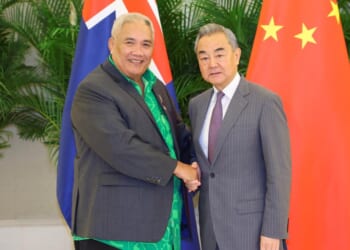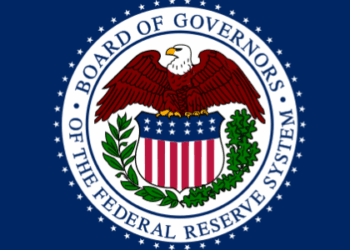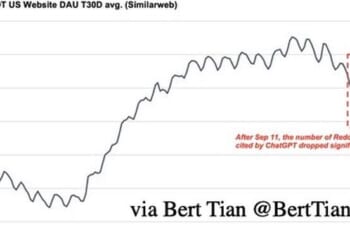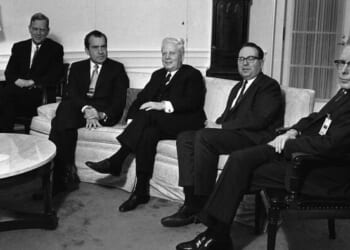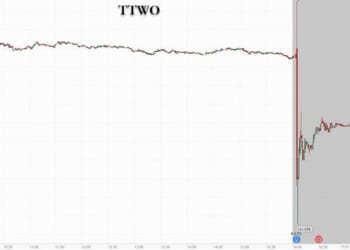Polling has repeatedly shown avowed socialist Zohran Mamdani with a strong lead in the race to become the next mayor of New York City. Should he win, then the victory would become the greatest electoral triumph by a stridently left-wing candidate in modern American political history.
Mamdani’s success so far has drawn obvious comparisons to independent-socialist Bernie Sanders nearly winning the 2016 Democratic nomination for president. Sanders has endorsed Mamdani, as have other socialists inspired by Sanders, such as U.S. Rep. Alexandria Ocasio-Cortez (D-NY).
But before Bernie, there was Jesse. In 1988 civil rights leader Jesse Jackson mounted a left-wing campaign for the White House and briefly seemed like he could become the Democratic Party nominee. Jackson was endorsed by the Democratic Socialists of America and . . . Bernie Sanders, who was then the mayor of Burlington, Vermont.
Though not successful electorally, Jackson’s 1988 campaign was a triumph historically. The issues and ideology promoted by Jackson during that race planted the seeds for the socialism-curious success stories in today’s Democratic Party. At the time, Bernie Sanders presciently predicted Jackson 1988 was “the most significant presidential campaign in at least 50 years.”
An InfluenceWatch profile of the Jesse Jackson 1988 Presidential Campaign recounts how Jackson changed the Democratic Party and with it, American history. Here is the overview:
Left-wing activist and preacher Jesse Jackson ran two campaigns for the Democratic nomination for President of the United States in 1984 and 1988. The 1988 race was the more successful of the two attempts, with Jackson briefly taking first place in the delegate race after a strong showing in the 12-state “Super Tuesday” primaries. He finished a strong second to Massachusetts Gov. Michael Dukakis (D) after winning 13 state primaries or caucuses and 29 percent of all votes cast in a race that featured five candidates winning at least one million votes. A 2019 NBC News history of the campaign observed that Jackson “emerged from the race as a pre-eminent force in Democratic politics.” Just a few weeks after the 1988 general election, Jackson was invited to visit the White House for a meeting with Republican Vice President (and President-elect) George H.W. Bush—a meeting Bush prioritized two days before he gave a similar audience to Gov. Dukakis, the defeated Democratic nominee.
Jackson’s 1988 campaign was endorsed by the Democratic Socialists of America; democratic socialist U.S. Sen. Bernie Sanders (I-VT), who was then the mayor of Burlington, Vermont; and The Nation, a left-of-center opinion magazine. On issues such as health care, national defense, social welfare spending, abortion, and U.S. relations with Israel, Jackson advocated positions to the left of most or all other rivals for the 1988 Democratic Presidential nomination. More than a quarter-century afterward, Jackson’s 1988 campaign is often credited with pushing the Democratic Party to the ideological left: a 2015 commentary in the Chicago Tribune noted that Democrats had largely abandoned the centrist positions on “free trade, balanced budgets, tougher crime laws, charter schools, [and] welfare restrictions” that had propelled Democratic President Bill Clinton to electoral success in the 1990s, and that “the Democratic Party is now closer to Jesse Jackson’s platform than Bill Clinton’s.”
The election of President Barack Obama and the emergence of Bernie Sanders as a serious contender in Democratic Presidential politics are among the other enduring legacies often credited to Jackson’s 1988 race. Speaking to an Iowa newspaper in 2016, Sanders noted the historically important contribution Jackson’s 1988 campaign made in a state with few African Americans: “People forget about this, but Barack Obama would not be president today if Jesse Jackson didn’t come to Iowa.” When asked in 2016 to name past campaigns he might learn from Sanders cited those of President Franklin Delano Roosevelt and the 1988 Jesse Jackson effort. When endorsing Jackson’s 1988 effort, Sanders declared it “the most significant presidential campaign in at least 50 years.”
The full profile of this historic campaign is here: Jesse Jackson 1988 Presidential Campaign.
InfluenceWatch also has a profile for the career of Jesse Jackson. Here is the overview:
Jesse Jackson is a left-wing activist, preacher, former associate of civil rights leader Dr. Martin Luther King, Jr., and Democratic Party politician. Jackson was born in 1941 and ordained a Baptist minister in 1968. He ran unsuccessfully for the Democratic nomination for President of the United States in 1984 and 1988, and founded and leads the Rainbow/PUSH Coalition. Left-wing activist Al Sharpton and former Democratic National Committee chairs Ron Brown and Donna Brazile are among the left-of-center political operatives whose careers were heavily influenced by early work for Jackson.
In 1966 Jackson joined Dr. Martin Luther King, Jr.’s Southern Christian Leadership Conference (SCLC). He was placed in charge of the SCLC’s Operation Breadbasket, a job placement program, and by 1969 had turned the Chicago affiliate of Breadbasket into a powerful political force within the city and the state of Illinois. By this time – a year after King was murdered – a New York Times report referred to Jackson as the “most persuasive black leader on the national scene.” Jackson’s management of Breadbasket and increasing national profile came into conflict with other SCLC leaders, and in 1971, Jackson resigned from the organization.
Jackson’s ideology skews to the left wing of the Democratic Party. During his 1988 run for the Democratic Presidential nomination, he was endorsed by the Democratic Socialists of America, later saying “I didn’t feel the need to run from the word, ‘socialist,’ or run to the word, ‘capitalist.’” In that campaign, Jackson proposed a single-payer government-run healthcare system to replace private insurance that was well to the left of the position advocated by 2016 Democratic Presidential nominee, Hillary Clinton. His 1988 advocacy of federal funding for abortions placed him to the left of the positions then held by future Democratic Vice Presidents Joe Biden and Al Gore. In 2013 he attended the funeral of Venezuelan socialist dictator Hugo Chavez, and in a prayer noted: “How do we measure a great leader? By how he treats the least of these. Hugo fed the hungry. He lifted the poor. He raised their hopes. He helped them realize their dreams.”





